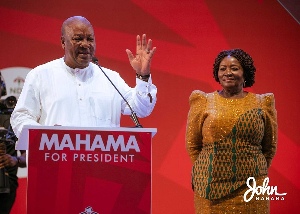Interest rates on government issued Treasury bills, and bonds continue to rise despite the stability being experienced by the local currency over the past three months.
Since August, the cedi has seen some stability - and has even appreciated against the dollar since the central bank relaxed its foreign exchange laws, coupled with announcement of the Eurobond, cocoa syndication deal and the IMF bailout.
But these factors have failed to rein in the interest rate as government continues to borrow excessively from the market. The domestic cost of borrowing by government has now reached a five-year record, B&FT's analysis has shown.
As at the end of last month, government has been paying 25.75 percent per annum on 91-day debt, which is almost equivalent to 26 pesewas on every cedi borrowed. That rate of interest is the highest since the third quarter of 2009, when three-month borrowing costs peaked at almost 26 percent.
Market analyst and economist at NDK Asset Management, Collins Appiah, believes that even though the currency has stabilised, stability is not the only factor contributing to high interest rates.
He noted that several factors including inflation, excessive government borrowing and increased demand on deposit fund also contribute significantly to determining interest rates.
“A lot of things on our economic front happened this year. Most of the indicators in the entire macroeconomy did not go in favour of the interest rate. At the beginning of the year, the cedi had a deteriorating impact on the other indicators.
“Any investor, especially foreign ones, who brings in foreign currency to invest expects to take the exchange rate upon himself; so if the rates are falling, then that investor will invariably demand a high interest rate to compensate for the risk he is taking".
Mr. Appiah also noted that with currency depreciation the government is forced to increase the rate to attract much-needed investment.
“To attract investments you have to give a rate higher and, this time in particular, government will continue to borrow to finance most of the promises they have made. If there is high demand, the rates go up. Government is still borrowing a lot from the economy, crowding out the private sector.”
With inflation currently at 16.5percent, Mr. Appiah said one of the unseen factors accounting for high interest rates is the increased demand for deposit funds.
The country has about 28 banks, 80 asset management and investment advisory firms, over 500 deposit-taking microfinance companies and several other deposit-taking finance houses.
“There is so much demand for deposits, so the price of the interest rate becomes who can give the highest price.
“Because there are a lot of financial institutions who are looking for deposits, you have to increase your interest rate to attract that money; and anytime you increase your rate somebody will also have to increase. So across the board, the rate we are operating on in Ghana has been very high.”
He believes that what can be done to stem the high interest rates solely lies at the doorstep of government.
According to him, if government can reduce borrowing and instead focus on increasing the tax base to generate more revenue, then interest rates will plummet and the financial institutions that are buying the Treasury bills and bonds will be forced to offer credit to businesses.
“The interest rate cannot comedown because government is still borrowing; but unfortunately, at the moment, it cannot do that. It needs to service the huge wage bill and other obligatory services.”
Business News of Wednesday, 5 November 2014
Source: BFT













